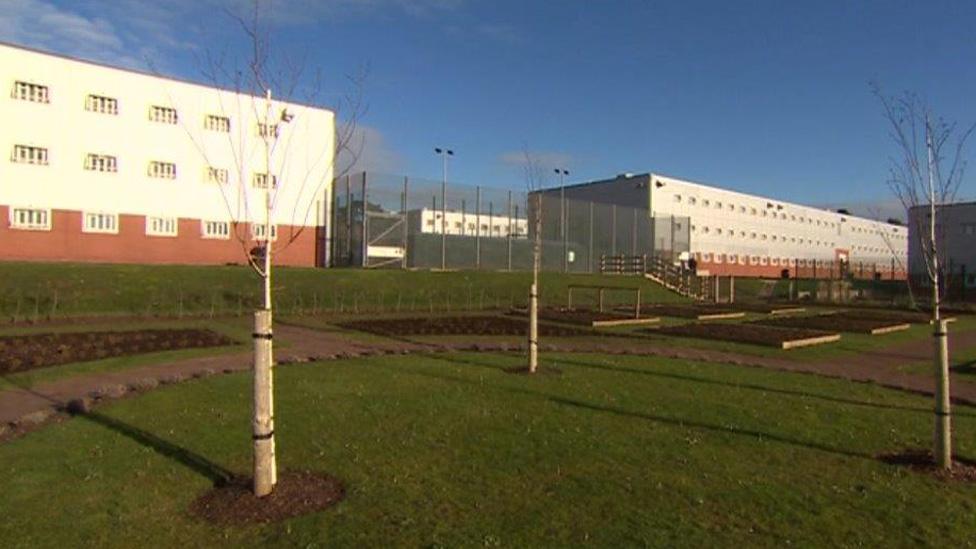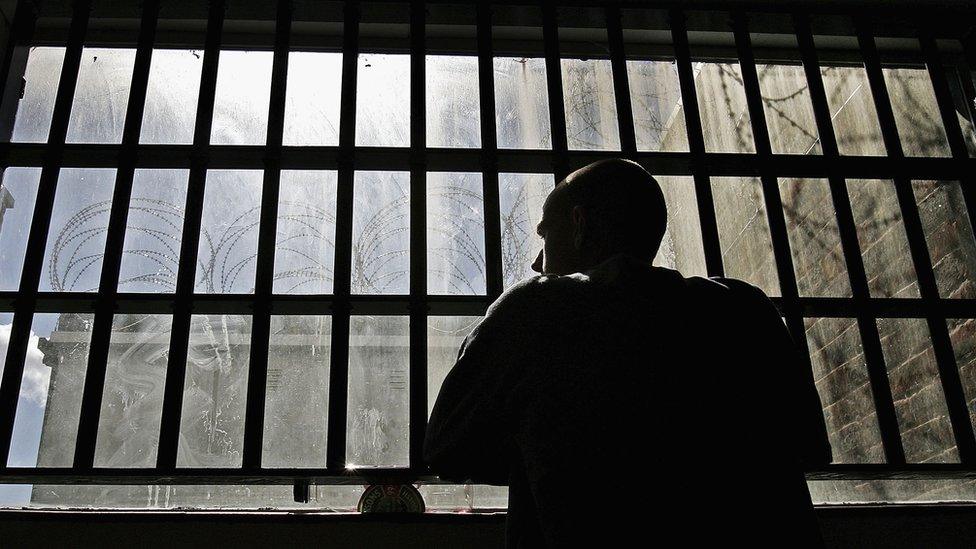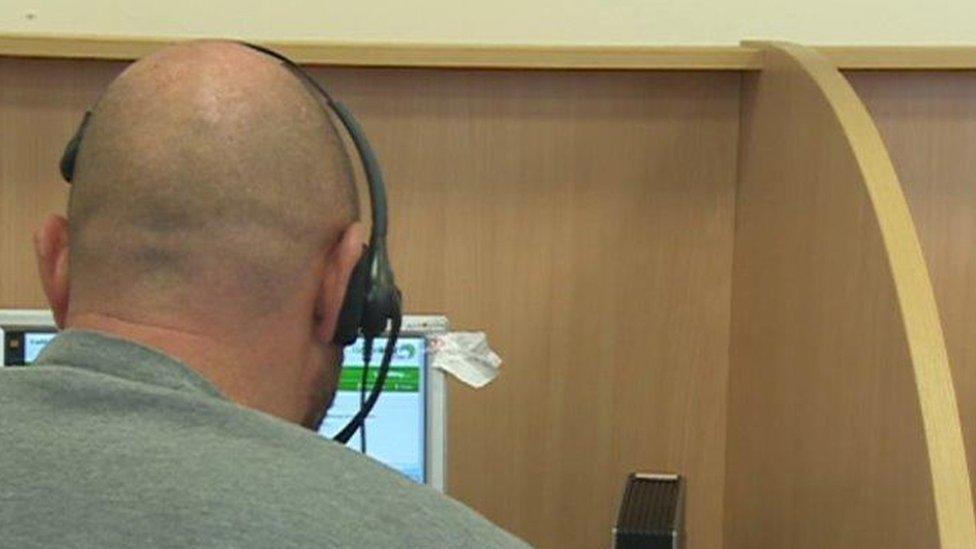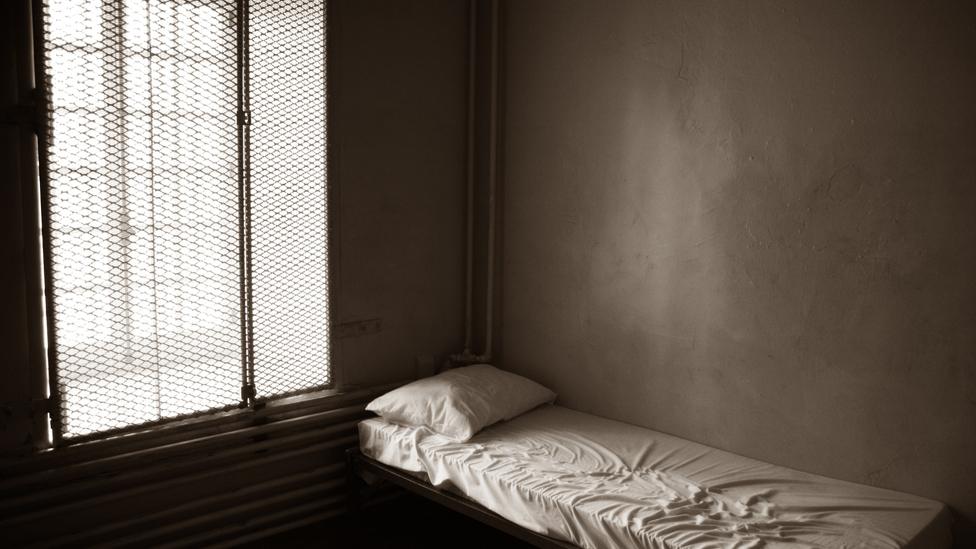Prisons: Safety improving at one of UK's largest jails
- Published

Parc Prison in Bridgend has about 1,612 inmates
Safety levels at one of the largest prisons in the UK are bucking the trend and improving, according to inspectors.
But while inspectors said HMP Parc in Bridgend has high standards, they found interventions for sex offenders to be "woefully inadequate".
About 17% of Parc's 1,612 prisoners are sex offenders and some go elsewhere for behavioural courses - but prison bosses say they are not contracted to do this.
The Ministry of Justice said the prison's staff "should be proud".
HM Inspectorate of Prisons have also called on the prison and probation service to work with the Welsh Government to improve housing for those released as 17% leave Parc homeless.
The Welsh Government said they were working with authorities to ensure "a smoother transition from custodial services to community services".
Overall, inspectors described "impressive findings" for the adult prison, particularly given the wider challenging environment for prisons.
Relationships between staff and prisoners were "very positive" and work to maintain relationships between prisoners and their families was "among the best we have seen".
Attacks on staff were low, and levels of violence had fallen, though were still marginally higher than other prisons.
At the time of November's inspection, there were 1,612 prisoners at Parc, 17% of who were convicted of sexual offences.
But as a remand and resettlement facility for prisoners, the G4S-run prison was not resourced to deliver specific rehabilitation for those charged with or convicted of sexual offences.

On average 100 prisoners are released each month from Parc prison in Bridgend
Despite this, nearly 300 sex offenders are currently placed at the private facility.
"Given the size of the sex offender population at Parc, there should have been provision within the establishment itself," said Peter Clarke, the chief inspector of prisons.
The report also highlights the challenges faced by the prison, with nearly a third of prisoners using substance misuse services, and 133 on heroin substitutes.
Despite this, the issue was being well managed, inspectors said.
While self-harm levels had fallen in the last 12 months, they remained high - as did self-inflicted deaths.
The prison has been trying to reduce the problem - particularly among those who engage in prolific self harm - by employing a psychologist and behaviour analyst.
More than half of the prisoners at Parc had mental health problems - but only 23% said they had received help.
Earlier this month the prison's director Janet Wallsgrove spoke of problems accessing mental health services from the local health board for both young offenders and adults.
Homelessness on release was also an issue the report found, which risks undermining the good work being done around rehabilitation.
On average 100 prisoners are released each month, with 17% not having an address to go to.
The inspectors have called on HMPPS and Welsh Government to ensure accommodation is available for prisoners on release.
"We are working closely with the Ministry of Justice and HMPPS to ensure a smoother transition from custodial services to community services," the Welsh Government said in a statement.
"We are testing the rapid re-housing and Housing First models with pilot projects operating in HMP Cardiff and HMP Eastwood Park to support men and women to access sustainable and suitable accommodation."Safety improving at one of UK's largest prisons
In November, the chief inspector of prisons made a similar call after an inspection of HMP Cardiff found nearly half the men were homeless on release - which increases the risk of reoffending.
Amy Rees, director general of probation and Wales at the MoJ, said: "The director and staff should be proud that they have made HMP Parc a safer environment for everyone.
"Violence has fallen, the key worker scheme has helped build good relationships between staff and offenders, and the specialist needs of prisoners are being met with bespoke rehabilitation programmes."
- Published3 March 2020

- Published13 August 2019

- Published15 October 2019

- Published16 January 2019

- Published10 September 2018

- Published10 September 2018

- Published23 June 2016

- Published4 January 2018
